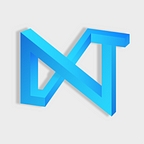Waltzing Through Andrew Ng’s Machine Learning Course
An insight by Abhinav Kannan, AI Researcher at Next Tech Lab
Machine Learning is a field that is gaining prominence at the moment, and more importantly so since it is powering other fields of engineering and making machines smarter. With applications ranging from predictive text keyboards to vehicles that can drive themselves, AI is making its way into all sorts of systems — small or big! Truly, as Andrew Ng says,
AI is the “new electricity”.
As AI is making rapid progress, and with the growing demand for experts in the field, many enthusiasts are wondering how to get started. An immense amount of material is available online from a variety of sources, which makes the confusion is understandable; a recommended place to begin is the Machine Learning course on Coursera, by Stanford University.
This article provides some points to keep in mind, for those taking it up.
- The course materials consist of video lectures, and exercises in the form of quizzes and programming assignments. To get started and stay on track, completing all of this requires a lot of time and motivation! A simple way to keep oneself going is to apply for the course certificate. Having a reward as an end in mind is also effective in keeping the journey exciting.
The certificate not only provides motivation to see oneself through, but is also a worthy prize for the time and struggle invested. Those having financial constraints with regard to paying for it, should apply for financial aid (below the blue “Enroll Now” button on the course page) and provide plausible answers for doing so. - The videos and exercises have a ton of errors in them, which are mentioned in detail under “Errata” in the Resources menu. These should be checked while watching the videos and solving the exercises, simultaneously, to avoid unnecessary confusion. The forum is also a wonderful area to discuss and get help; please keep in mind the Honor Code while participating here.
- One aspect that makes this course tough is the weekly programming assignments (PAs). Tackling them requires not just clarity in the topics, but also a good amount of patience and persistence (a few head-bangings are still okay). For instance, the Week 5 PA (Exercise 4) is one of the many challenging exercises; the “Tutorials” section in the Resources menu should be used for PAs that seem difficult and time-consuming.
- Since this is a huge amount of material, it comes in handy to create one’s own notes during the lectures (treat it like a real class!). It definitely takes an effort to sit down and write, and while it sure might be tempting to sit back and watch the videos lazily, having no notes can cost heavy during the exercises, which require reference to several key points and formulae. Writing down helps in better memory retention, and more importantly, saves us from playing back the videos all over again!
(Check out this guy’s notes for an idea: holehouse.org/mlclass)
There are a lot of fun AI applications covered such as self-driving vehicles and character recognition, which provide a better understanding of the many techniques taught. This is also inspiring since we can use these techniques to create something for ourselves (for example, the final programming assignment, with its large database of Hollywood movies, can give personalized movie recommendations!). Completing the course is definitely a hallmark achievement, but then, doing so is undoubtedly not an end to one’s quest in machine learning — it can be considered an introductory boost for an exciting AI journey ahead. This course was introduced on Coursera in 2012. We’ve come a long way since 2012 — massive advancement has taken place in the field till this day!
Special thanks to the members of Next Tech Lab for their contribution; it is hoped that this article is meaningful for a lot of machine learning enthusiasts. The knowledge gained from this course is surely helpful for many smart projects, as well as further research and development.
